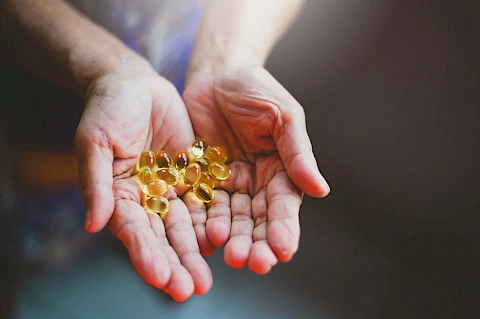
One particularly essential asset to senior health is vitamin D and its role in sustaining strong and healthy bones. Today, we'll shine a light on the importance of this vitamin to senior bone health. Join us as we discuss its role in preventing osteoporosis and fractures, and offer practical and effective advice on how to acquire sufficient vitamin D through dietary sources and safe sun exposure.
Vitamin D and Its Importance to Senior Bone Health
Vitamin D, also referred to as the "sunshine vitamin," is a fat-soluble nutrient produced in our bodies when our skin is exposed to sunlight. It's essential for our overall health, particularly in maintaining strong bones. Vitamin D plays a critical role in aiding the body's absorption of calcium, a mineral that's indispensable for bone formation. In the absence of sufficient vitamin D, our bodies can struggle to absorb the necessary amount of calcium, leading to weaker bones. Vitamin D also helps preserve bone density, preventing bones from becoming brittle and prone to fractures.
The Connection Between Vitamin D Deficiency, Osteoporosis, and Fractures
Osteoporosis is a bone disease characterized by a decrease in bone density. This results in brittle, fragile bones that are more susceptible to fractures. A sustained deficiency in vitamin D can place individuals, especially seniors, at an increased risk of developing osteoporosis. Suppressed vitamin D levels impair calcium absorption, causing the body to extract calcium from bones to compensate, thereby weakening them and increasing the risk of fractures. That's why maintaining sufficient vitamin D levels is a key strategy in preventing osteoporosis and reducing fracture risks.
Natural Sources of Vitamin D: Diet and Sun Exposure
Getting adequate vitamin D can come from a combination of diet, supplements, and sun exposure. Dietary sources include fatty fish like salmon, tuna, and mackerel, fortified dairy products, beef liver, egg yolks, and cheese. However, it can be challenging to get enough vitamin D solely from diet.
The sun is a significant source of vitamin D, and moderate sun exposure can help boost your levels. It's important, however, to balance the benefits of sun exposure with its potential risks, such as skin cancer. Experts recommend around 15 minutes of exposure to the sun a day, preferably during the hours when the sun is not at its peak.
Practical Advice on Maintaining Adequate Vitamin D Levels
Including vitamin D-rich foods in your diet is an effective way of maintaining good vitamin D levels. Incorporating foods like oily fish, egg yolks, and fortified cereals can assist in maintaining healthy bones.
Safe sun exposure practices are equally important. Short periods of sun exposure, preferably during early morning or late afternoon hours when the sun's rays are less intense, are beneficial. Wearing sun protection, including a hat and sunscreen, for prolonged sun exposure is advisable.
Regular check-ups to monitor vitamin D levels are crucial as they help identify any deficiencies early, allowing for timely interventions like dietary changes or supplements.
Stay Strong With Senior Helpers Treasure Coast
Maintaining good bone health is critical as we age, and vitamin D plays a vital role in this process. It's not just about preventing osteoporosis and fractures; it's also about enhancing overall well-being and quality of life—something at which we at Senior Helpers Treasure Coast excel.
Do you need help with meal planning and preparation? Seniors who live in Jensen Beach, Port St. Lucie, Fort Pierce, Vero Beach, and Sebastian can contact Senior Helpers Treasure Coast today. Through our in-home care and companionship services, we're committed to helping you live a healthier, happier, independent life.